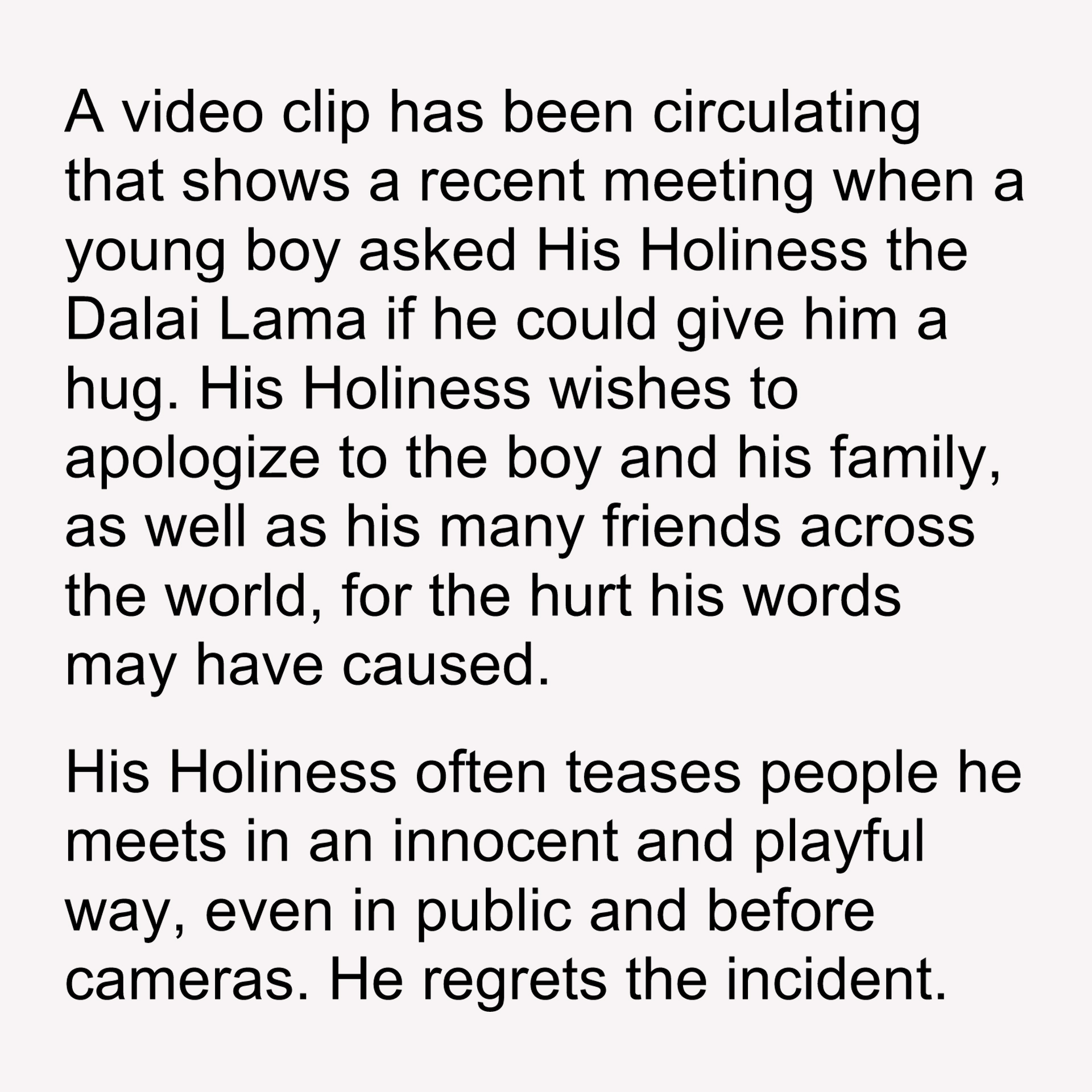Dalai Lama's Apology Sparks Reflection on Cultural Norms and Respect
In a recent incident that has ignited both debate and introspection, the Dalai Lama issued an apology for his actions involving a young child. The incident occurred when he kissed the child on the lips and instructed him to "suck his tongue."
This incident has spurred conversations about cultural norms, personal boundaries, and the implications for the Dalai Lama's reputation and legacy.
The context in which this incident took place is important to consider. The Dalai Lama explained in a statement shared on Twitter that his interactions with people often carry a playful and affectionate tone, irrespective of the presence of cameras. He, however, recognized that his behaviour, in this case, was inappropriate and should have taken the child's feelings into account.
The incident's video went viral on social media, triggering a mix of emotions and responses.
Reactions to the incident have been diverse. A segment of the audience expressed deep disappointment and indignation, questioning the appropriateness of the Dalai Lama's behavior. They questioned whether such actions are becoming of a spiritual leader. Conversely, there have been those who came to his defense, asserting that his intentions were misunderstood and that he aimed to convey warmth and affection to the child.
The incident has highlighted the cultural differences in expressing love and respect. While in certain cultures, it's not uncommon for adults to kiss children on the lips as a sign of affection, in other cultures, this act may be perceived as crossing boundaries.
This occurrence underscores the significance of understanding and respecting cultural diversity in expressions of care.
The Dalai Lama's apology is a significant step in acknowledging his error. However, it prompts further contemplation on how this event might influence his reputation and legacy. It's essential to engage in conversations that delve into the complexities of cultural norms, personal space, and the evolving role of spiritual leaders.
Suggested Measures for the Future
To prevent similar incidents, several measures could be considered:
Awareness and Sensitivity: Leaders, especially those with a global influence like the Dalai Lama, should be well-informed about the nuances of cultural norms and expressions of affection to avoid misunderstandings.
Guidelines for Interaction: Developing guidelines for interactions with the public, especially children, can help leaders maintain appropriate boundaries and ensure the comfort and respect of all parties involved.
Cross-Cultural Education: Promoting cross-cultural understanding and education can help prevent such incidents by fostering awareness and empathy for diverse cultural perspectives.
Empowerment of Individuals: Encouraging individuals to speak up if they feel uncomfortable can foster open dialogue and help address concerns promptly.
In this incident, the underlying message is not just about the Dalai Lama's actions, but also about the need for continuous learning, growth, and adaptation, regardless of one's stature.
By addressing these matters transparently and openly, we contribute to a more inclusive and respectful society that values cultural diversity.


Comments
Post a Comment